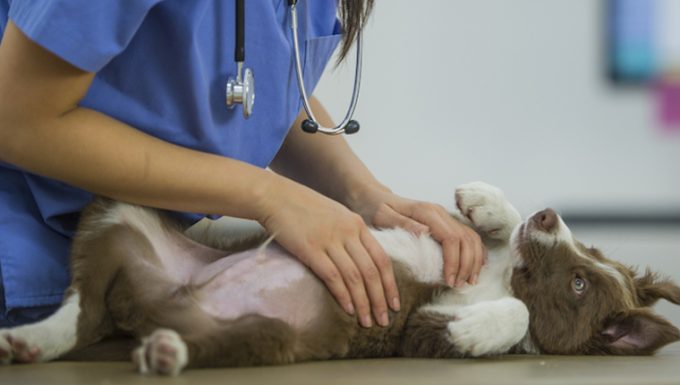Liver fibrosis in dogs is a noninflammatory condition that harms the liver. The condition usually affects young dogs the most.
Unfortunately, the condition can result in liver failure if it is not treated.
Technically, the condition is also known as juvenile fibrosing liver disease.
If you see the signs of the condition in your dog, then get to a veterinarian for a proper diagnosis and treatment.
Here’s what you should know about the symptoms, causes, and treatments for the condition.
Symptoms of Liver Fibrosis in Dogs
The condition produces quite a wide range of symptoms. For instance, some of the most common symptoms include:
- Diarrhea
- Vomiting
- Loss of appetite
- Peeing more than usual
- Kidney stones
- Drinking more water than usual
- Poop with blood in it
- Ascites
- Stunted growth
Causes of Liver Fibrosis in Dogs

The cause of the condition is usually to do with toxins in the gastrointestinal tract. Additionally, young dogs suffer from the condition the most. Also, larger breeds seem to develop the condition more often than smaller dogs.
Treatments for Liver Fibrosis in Dogs
Firstly, your vet will ask about your dog’s symptoms. Secondly, your vet will ask about your dog’s full medical history. This will include breed-specific problems.
Thirdly, a full physical examination will be carried out. Blood and urine tests will be taken. Specifically, liver enzyme levels will be analyzed. Also, your vet will look for signs of crystals in your dog’s pee.
Generally, ultrasounds and a biopsy can confirm the condition.
Unfortunately, treatment often means a stay in hospital. While in hospital, your dog’s symptoms will be treated. For example, any urinary stones will be removed.
Additionally, medication — including antibiotics — can help with any infections. As always, if your vet prescribes your dog any medicine, make sure to stick to the correct dose and frequency instructions. Also, complete the full course of medicine.
Ultimately, early diagnosis and treatment is key with this condition. So make sure to schedule regular vet visits for your dog!
Have you ever cared for a dog who suffered from this condition? How did your vet help your dog recover? Let us know in the comments section below.









